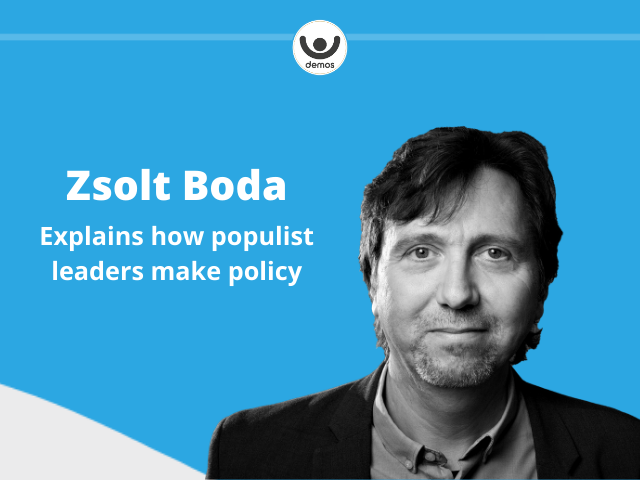DEMOS explains how populist leaders make policy
DEMOS H2020 project leader Zsolt Boda (Centre for Social Sciences in Budapest) explains the main features of populist policies in a new video released today (10/11/2020) by DEMOS. Based on his scientific article about the topic, the talk covers how populist policies usually downplay policy expertise, opposition parties, and civil society actors. It also explains the divisive features of populist communication in the policy making process. Boda says that his research has academic and policy implications. "The research helps us better understand the survival potential of populist leaders despite the sometimes poor quality of their policies," Boda says. "And it gives ideas of how to fight against populism, partly by learning from them." Watch the video on the project YouTube channel at: https://youtu.be/2gZnghmxDfo(opens in new window). Subscribe to the DEMOS YouTube channel: https://www.youtube.com/channel/UCjkqp0IEGUbDqK7AZP9gZsA?view_as=subscriber(opens in new window) Get to know DEMOS: Facebook https://www.facebook.com/DEMOSH2020/(opens in new window) Twitter https://twitter.com/DEMOS_H2020(opens in new window) Website https://demos-h2020.eu/(opens in new window) Newsletter https://demos-h2020.eu/en/newsletter-subscribe(opens in new window)



